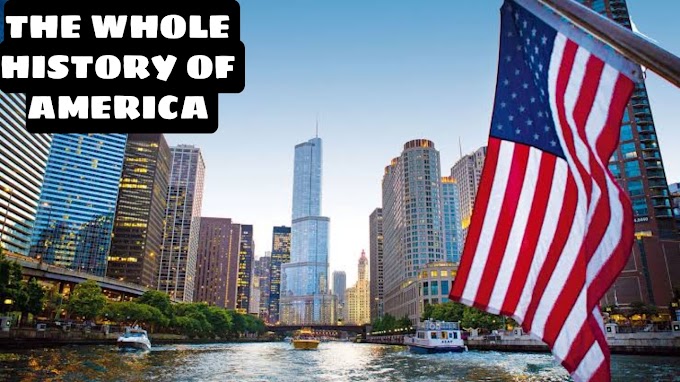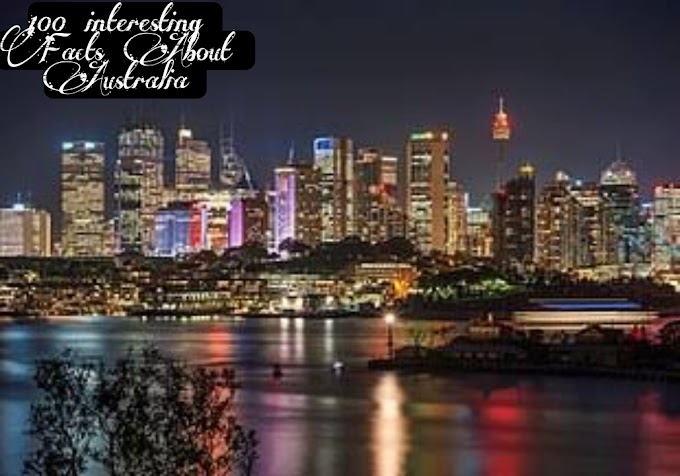THE WHOLE HISTORY OF THAILAND
Hello Guys:
Welcome to Countries Facts so Today in this Article I will show you the whole history of thailand has a bit of a foggy beginning it is not certain when people first came to the region but fossils of homo erectus were found in the northern province of lampang that can be dated all the way back to at least 500 000 years ago another location has gifted archaeologists with some of the world's oldest evidence of an agrarian society additionally we do know that consistent inhabitation of the area could potentially date back 10 to 20 thousand years and around 3000 bc the korat plateau was likely home to bronze workers and farmers based on archaeological evidence that has been found the kingdoms of khmer and mon began to form in the vicinity of modern day thailand these kingdoms served as a notable influence on the culture of contemporary thailand as did some of the other peoples who began to show up in the area over the following centuries by the mid-seventh century the thai people of nan chao were migrating to the mainland of southeast asia and began to settle under the dominion of the khmer empire in 1238 sri intraditia a chieftain of the thai people formed a new kingdom at sukhothai and declared independence from the khmers the people of this new kingdom became known as the thais a word that fittingly means free these new ties wanted to separate themselves from the other thai people who still remained under the control of foreign kingdoms throughout the following centuries the sukhothai kingdom began to grow and extend its rule across the region of today's thailand creating vassal states across burma laos and the malay peninsula the leaders of this monarchy were known to be kind in comparison to others and created impressive diplomatic relations with foreign powers such as that of the yuan dynasty in china unfortunately for the ties though the kingdom began to fall apart from that point on sukhothai's vassal states began to abandon them and the monarchy was unable to recover before the newly founded ayutaya kingdom inserted themselves into the equation in 1378 the sukhothais were initially forced to surrender to their opposition by 1438 not even a full century later the former great kingdom became fully absorbed by the ayattayas ayat taya kingdom first came about in the 14th century around which time the city-state of ayatai was founded in 1350 to be exact the ayatiah kingdom quickly erupted into the leading power of the region but its structure differed from some of its adversaries the ayatis ran under a system of self-governing principalities and provinces which were headed by members of the royal family who maintained loyalty to the king the king in turn was an absolute monarch and would spearhead the kingdom's political and economic expansion over the centuries surpassing their predecessor of the sakhotai kingdom the ayataya kingdom was eventually able to force the long-reigning khmers into submission before turning their attention outward by the start of the 16th century in 1511 the ayat tayas received their first diplomatic mission from portugal who wished to develop a trade relationship with the local thai kingdom since the portuguese had just captured malacca from what is now malaysia creating a solid trade agreement with the surrounding states proved to be vastly beneficial for both parties in the 16th century multiple trade treaties came to fruition first between the ayataya kingdom and the portuguese in 1516 and then another between the ayat tayas and the netherlands in 1592 through the following years the thai power sent diplomatic missions to paris and the hague in addition to developing commercial ties with the british and the japanese relations between the ayataya kingdom and the western powers were quite positive and advantageous until the consensus among the ties did a complete flip the locals began to fear the potential threat of the western religion especially following the arrival of missionaries from france as well as disapproval of the arrival of english warships to the region the following 150 years marked a time of intentional distancing from the west meanwhile the ayat tayas had fought multiple dynastic and local conflicts within their own kingdom which eventually settled down making way for what some historians refer to as the golden age this period was marked by thriving art education and literature and occurred during the latter half of the 18th century the peace throughout the kingdom and blooming of the arts would sadly be cut short by the burmese who had contributed to some of the bloody local disputes prior to this golden era in 1767 the people of burma made a final successful attempt to seize the capital of the ayataya kingdom the city was absolutely destroyed and the bordering areas were completely deserted structures and humans alike were laid to waste the kingdom descended into utter chaos and eventually fell under the hand of a former military commander priya taskin taskin who had escaped the siege of the capital declared himself to be the new king and moved the king's capital to tanbury which was just across the river and had better trade opportunities utilizing this advantage taskin promptly promoted thai trade with china while taskin was triumphant in keeping the ayataya kingdom from facing total destruction he was still dethroned and executed in 1782 by a coup under the command of general chao freya chakri general chao now took the throne styling himself as king jotfa and was the first of the chakri dynasty that still rules thailand today he had the capital moved once again this time to what is now bangkok the state of the kingdom was known as siam and a strong focus was put on the political cultural and military rebuilding this new wave of kings besieged the capitals of laos and cambodia having already created trade treaties with the colonizing british and the united states the thais began to focus even more on forming favorable relationships with the enclosing western powers such as the british us and the french trade with the west skyrocketed and had a great impact on the thai economy now connecting it to the world monetary system still foreign powers urged the current monarch king manku to create a series of legal and administrative reforms in order to be seen as an equal by the west the death of king mongku in 1868 complicated the matter but the reforms did not come under the reign of chula longhorn near the end of the 1800s the new king abolished slavery and the corvae system created new european style schools formed a police force and standing army updated the legal system established a salaried bureaucracy and essentially overhauled the entire of siam's outdated policies the first railway network between ayotte and bangkok was also opened all of this was done with extensive advising from the west most predominantly the british while some anti-reformists were dissatisfied with the king's decisions others regarded him as a skilled diplomat who was a genius in avoiding colonization by playing western nations against each other and using them to his own advantage either way as the british and french pushed their colonial efforts further siam was forced to give up some of their territory such as in laos and cambodia and in the northern malay in exchange for maintaining independence continuing its positive relations with the western powers siam joined the allies and declared war against germany in world war one as a result at the end of the war siam received commending amendments to their treaties with france and britain took impounded german ships that would be used in its merchant marine and was present at the peace conference of versailles in 1919. siam was also a founding member of the league of nations post-world war one in 1932 a bloodless coup led by a group known as kana ratzidon the people's party brought about the end of the absolute monarchy and replaced it with the first constitutional regime the first parliamentary elections were held in november of 1933 shortly after as world war ii broke out the thai people collaborated with the japanese allowing them to pass through to the british controlled malay peninsula and burma in january of 1942 the prime minister of thailand agreed to a mutual defense pact with japan which included a declaration of war against britain and the united states thankfully for the nation in the end the thai ambassador charged with delivering the declaration to the u.s government refused to do so in 1944 the prime minister was forced to resign and was subsequently tried for war crimes the following decades were filled with governmental uncertainty as power was repeatedly passed between a democracy and military dictatorship after the resolution of world war ii economic struggles ensued as well namely the asian financial crisis in 1997 and more political and governmental unrest continued in 2017 after the crowning of prince vajra ralankorn as king a new constitution was signed with its aim at finally bringing democracy back to the nation you thank you so much for watching we will see you tomorrow bye.

















